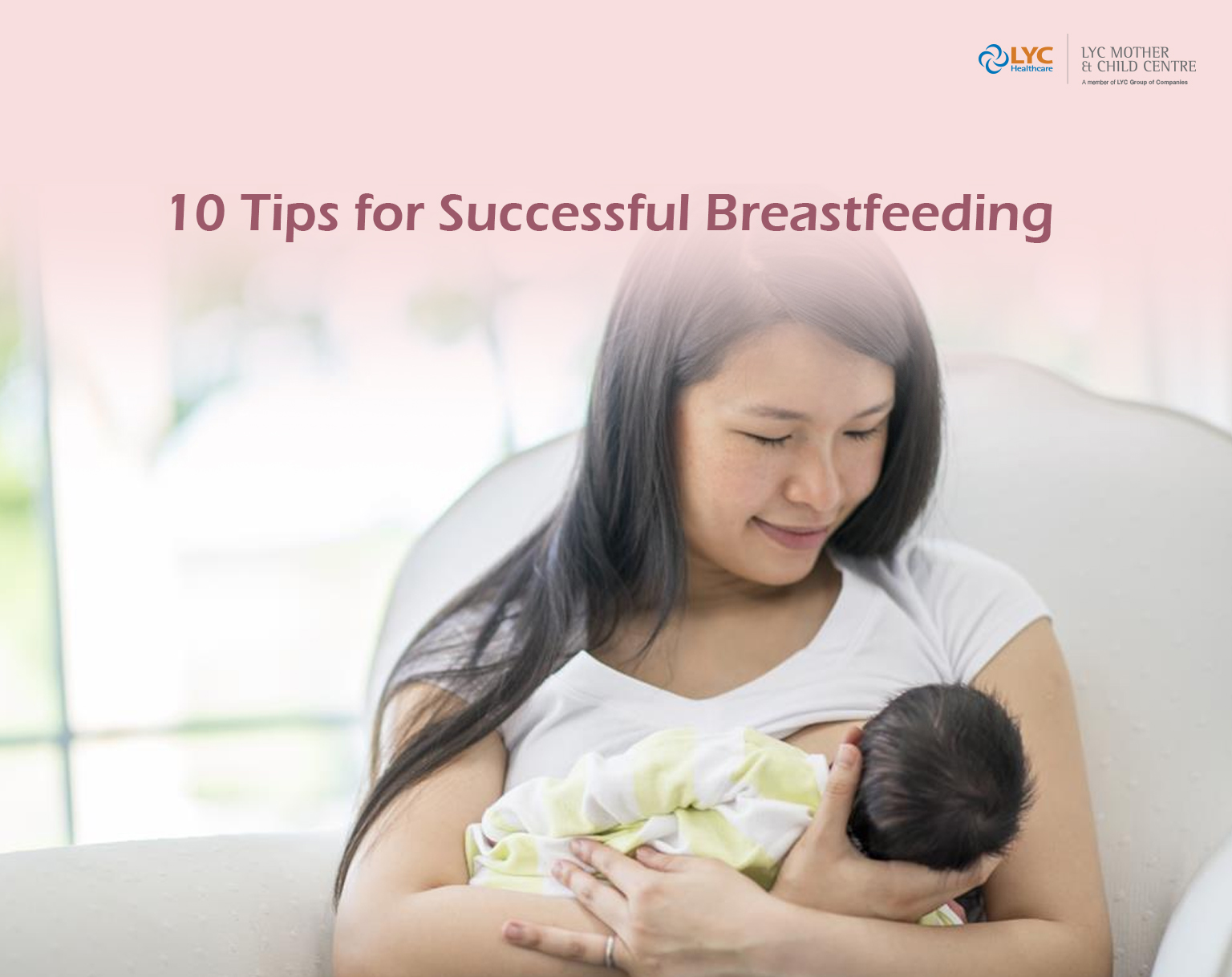10 Tips for Successful Breastfeeding

Breastfeeding has many benefits, it not only provides the ideal nutrition source for the growth and development of your baby, but breastmilk is also easier to digest and helps lower the chance of infections and diseases. Long-term breastfeeding can also prevent infant obesity, diarrhoea, respiratory problems, and even reduce the risk of sudden infant death syndrome.
In the first few weeks after birth, have skin-to-skin contact with your baby as much as you can. This not only helps breastfeeding, it can also keep your baby warm, reduce your baby's crying and stress, regulate your baby's blood sugar, and promote bonding between parent and child.
If this is your first time breastfeeding, here are some tips:
- First, gently welcome your baby to the world by holding your baby to your breast. Skin-to-skin contact with your little one helps your body produce more milk and awakens the baby's feeding reflex, and your baby will find mummy's breast faster.
- Next, sit or lie down comfortably, using a pillow to support your back. Relax your shoulders and keep your baby close to your breast, instead of moving your breast closer to your baby.
- Hold your baby close, belly to belly, nose to nipple, chin to breast, bottom close to your body, using your hand to support your baby's neck and shoulders firmly without pushing the back of your baby's head as this can make your baby push away from your breast.
- Learn how to express milk by hand, putting a few drops of milk on your nipple will help get your baby's attention to start feeding.
- For the first few weeks, you may need to support your breasts while breastfeeding, but make sure to keep your fingers away from the areola.
- Rest your baby's chin on your breast, nose to the nipple, until your baby's mouth opens wide like a yawn to suck on the breast. You can also gently touch your baby's lips with your nipples until their mouth opens very wide.
- When your baby is breastfeeding, the lips should be turned outwards. You will feel your baby sucking gently at first, becoming more intense with each swallow, with few pauses.
- When your baby stops sucking, burp your baby and switch to the other breast.
- If you need to take your baby off your breast, gently place your fingers at the corners of your baby's mouth until the sucking stops.
- A newborn baby's stomach is small and cannot hold a lot of milk. That's why the colostrum is so concentrated, and why babies want to be fed regularly in the first place.
There are many breastfeeding positions, find the one that works best for you. In any case, the first four to six weeks are a learning period for both you and your baby, and breastfeeding must be based on your baby's needs rather than feeding on a schedule.
It is important to note that if your baby cries, it is a sign that they are very hungry and needs to be calmed down before feeding. Also, when touching your baby's mouth or cheek, they will turn their head and open their mouth in search of food, and some babies will lick their lips or put their hands to their mouths, these are all hunger cues or signs that your baby needs a feed.
Babies need to feed at least 8 times a day for the first few weeks, which not only allows mummy to produce more breast milk, but also helps your baby regain the weight lost during the first few days of birth. Breastfeeding at night is also important, it also helps mummy's body to continue to produce milk.
